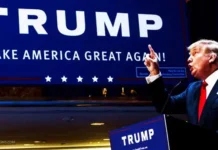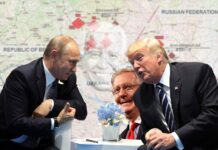Context
 In addition to the economic factor and and Indo-Pakistan relationship, described in the previous article, the role of NATO in changing Europe is also important to the new Afghan strategy; one has to fully understand the European geopolitical environment – more specifically, the balance of power on the continent – to understand how it will operate. To do so, one must take the following into account:
In addition to the economic factor and and Indo-Pakistan relationship, described in the previous article, the role of NATO in changing Europe is also important to the new Afghan strategy; one has to fully understand the European geopolitical environment – more specifically, the balance of power on the continent – to understand how it will operate. To do so, one must take the following into account:
- The breakup of the Soviet Union, emergence of the newly independent states and resurgent Russia
- The unification of Germany
- The European Union and the evolution of NATO
Analysis
Russia’s Resurgence and NATO
 The resurgence of Russia and the Georgian episode in 2008 proved that there was a limit to NATO’s expansion into Russia’s historic Near Abroad. Irked by Kosovo’s unilateral declaration of independence from Serbia, Russia reacted by facilitating the independence of South Ossetia and Abkhazia. Although thus far about 60 nations have recognized Kosovo’s independence, about 100, including Russia and China, concerned over what they regard as an alarming precedent, have not. A decision regarding the legality of Kosovo’s independence is pending in the International Court of Justice in Hague. In addition, NATO continues to be at odds with Russia regarding the prospect of Ukraine and Georgia membership in NATO.
The resurgence of Russia and the Georgian episode in 2008 proved that there was a limit to NATO’s expansion into Russia’s historic Near Abroad. Irked by Kosovo’s unilateral declaration of independence from Serbia, Russia reacted by facilitating the independence of South Ossetia and Abkhazia. Although thus far about 60 nations have recognized Kosovo’s independence, about 100, including Russia and China, concerned over what they regard as an alarming precedent, have not. A decision regarding the legality of Kosovo’s independence is pending in the International Court of Justice in Hague. In addition, NATO continues to be at odds with Russia regarding the prospect of Ukraine and Georgia membership in NATO.
After backing away from its original plans for the Missile Defense System, in which the components were to be installed in the Czech Republic and Poland, the United States expects Russian cooperation regarding Afghanistan and Iran’s nuclear program. Russia, however, appears hesitant to commit itself, as it remains unsure about NATO’s intentions in Europe. It probably does, however, want to help NATO in Afghanistan, but not at the expense of expansion into its Near Abroad. Largely as a result, the first meeting of the NATO-Russia Council since the Georgia conflict has failed to produce any Russian commitment on offering militarily assistance to NATO in Afghanistan.
We at POLITACT believe that Russia is most likely to bypass NATO and develop its own relationship with President Karzai. For his part, faced with heavy criticism from NATO, President Karzai appears to welcome such a relationship with Russia.
 The European Union and NATO
The European Union and NATO
The positions of France and Germany during the Georgian conflict were markedly different from those of the United States and the UK, both of which wanted a more aggressive approach. The Germans and the French remain unwilling to take such a stand; after all, they both belong to the European Union and NATO. It is likely that the sentiment for strengthening the EU’s military capacity will regain momentum as NATO overreaches and questions regarding its role, in the face of emerging European realities, are heard again.
For example, a controversy has emerged as a result of France offering to sell arms including its state-of-the-art amphibious assault ship (Mistral) to the Russians, which NATO feels is contrary to its policy towards Russia. In addition to Georgia, the Baltic states of Lithuania, Latvia, and Estonia are also worried about the Russians purchasing the ship, especially from their fellow NATO and EU member France.
The French have made the case that selling arms to Russia is essential for peace and stability in Europe. According to French Prime Minister Francois Fillon: “It would be impossible to call for continental stability in partnership with Russia if we refuse to sell armaments to Russia. A refusal would amount to contradicting our own discourse.” Thus it is likely that the competition between European Union and NATO will intensify in the future regarding the goals of both organizations not only in Europe but also in Afghanistan while increasing the importance of Commonwealth of Independent States (CIS,) including Turkey. The criticality of CIS is tied to the European need for energy resources and also to serve as an alternative to Pakistan, for supplying and supporting coalition troops in Afghanistan.
Europeans and especially the Germans are heavily dependent on Russia for their energy supply. Thus there is a call for diversifying Europe’s energy sources, reducing its excessive dependence on Russia and allowing France and Germany to become more dependable NATO members. But for now, France and Germany are taking an independent position on Afghanistan, as they did during the Georgian conflict. These positions are more reflective of their traditional status in Europe than the post World War II set-up. When the Germans and the French take independent stands on various global conflicts, it undercuts the premise of Article 5 of the NATO alliance:
“The Parties agree that an armed attack against one or more of them in Europe or North America shall be considered an attack against them all and consequently they agree that, if such an armed attack occurs, each of them, in exercise of the right of individual or collective self-defense recognized by Article 51 of the Charter of the United Nations, will assist the Party or Parties so attacked by taking forthwith, individually and in concert with the other Parties, such action as it deems necessary, including the use of armed force, to restore and maintain the security of the North Atlantic area.”
A United Germany
A senior German General had to resign in the aftermath of NATO’s recent airstrike in Kunduz, Afghanistan, which had resulted in the death of about 100 civilians. German public opinion is against continuing the course in Afghanistan. German reaction to the new US strategy in Afghanistan was best expressed by the nation’s senior official: “We’ve made it very clear that in our view the Obama speech alone does not provide a strategic basis, but that, together with the Afghans, we would like to hear and have binding agreements and what they are willing to contribute.”
As a unified and confident Germany emerges once again on the world scene, the United States and the UK want it to use its influence to help change Russia’s behavior and check its resurgence. For its part, however, Germany appears to be developing an economic and cordial relationship with Russia. Could this be the reason why a reluctant France returned to full NATO membership in April 2009?
In this environment, the newly independent states and Eastern European republics, disturbed by Russia’s reemergence, are turning to NATO to assuage their anxieties and are therefore likely to provide majority of the troops for surge in Afghanistan. German Defense Minister Karl-Theodor zu Guttenberg was reported on December 20th to have stated that talks should be opened up with moderate elements within the Taliban, and that refusing all dialogue with the group is no longer a valid option.
The International Conference on Afghanistan organized by UK and to be held in London on January 28th, will probably reflect the true European position on the new US strategy. The conference is to be attended by 68 nations. Angela Merkel, the German chancellor, and the French president, Nicolas Sarkozy, are both expected to attend.
So what’s at Stake?
Thus NATO’s credibility and future is clearly on the line in Afghanistan. The preservation of the alliance appears to be the most important factor for US to escalate the war. If NATO fails in Afghanistan, the security apparatus of Europe which has existed since World War II will also be threatened. As listed above, NATO is under strain not only in Afghanistan but also in Europe, and the reasons are connected.
Are the threats related to the extremists in Afghanistan and Pakistan, coupled with Iran and North Korea’s nuclear ambitions, enough to keep the alliance together? Or, is it the European dynamics discussed above which will likely decide the future of NATO?
In the aftermath of the Soviet Union’ breakup, the emergence of the EU has complicated NATO’s role. Perhaps the best course for NATO is the one envisioned by Zbigniew Brzenski: adding NATO-SCO and NATO-CSTO Councils to the already existing NATO-Russia Council. For the time being, however, France and Germany don’t appear comfortable with this.
One can conclude that European rivalries will ultimately play a crucial role in the outcome of the Afghanistan conflict, which leads to the most important questions of all: can Afghanistan, the graveyard of empires, be saved and if so, at what cost?
To be continued
Part III –Can Afghanistan be saved
Tell US What You Think



